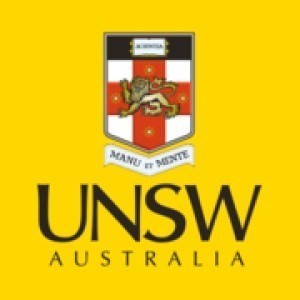Photos of university / #unsw
The Master of Public Policy and Governance at the University of New South Wales is a comprehensive graduate program designed to equip students with the critical skills, knowledge, and practical expertise required to analyze, develop, and implement effective public policies within complex governance frameworks. This program is tailored for individuals aspiring to contribute to policy-making processes across various sectors, including government, non-profit organizations, and the private sector. Through a combination of rigorous coursework, real-world case studies, and hands-on projects, students will gain insights into the structures and functions of government, policy analysis methods, and the broader socio-economic and political contexts shaping public decision-making. The curriculum explores essential topics such as public administration, policy development, ethics in governance, leadership, and strategic management, fostering a multidisciplinary understanding of governance issues. Students will also have opportunities to engage with current policy challenges through internships, guest lectures from industry experts, and collaborative research projects. The program emphasizes critical thinking, ethical considerations, and innovative problem-solving approaches, preparing graduates to navigate the complexities of public administration and policy formulation in diverse environments. With access to UNSW’s extensive resources, faculty expertise, and a vibrant academic community, students will develop the analytical and practical skills necessary to influence positive change in society. Graduates of the Master of Public Policy and Governance will be well-positioned to pursue careers in policy advisory roles, government agencies, international organizations, research institutions, and consultancy firms dedicated to public sector improvement and governance innovation.
MPPG 1 year stream (A)
You have been issued 48 UOC Admission Block Credit. To qualify for the award of the degree, you must successfully complete:
1 core research course (6 UOC)
- SRAP5101 Research Methods and Design (6 UOC)
1 of 2 prescribed research courses (6-12 UOC)
- SRAP5103 Research Report (6 UOC)
- SRAP5104 Research Project (12 UOC)
2 core disciplinary courses (12 UOC)
- SRAP5001 Policy Analysis (6 UOC)
- SRAP5004 Policy Regulation & Governance (6 UOC)
1 of 2 prescribed disciplinary electives (6 UOC)
- SRAP5018 Power, politics and policy (6 UOC)
- SRAP5021 Policy & Digital Advocacy (6 UOC)
2-3 prescribed electives (12-18 UOC)
- COMD5001 Internat. Development Policy (6 UOC)
- COMD5004 Climate Change & Development (6 UOC)
- EDST5436 Evaluation of Educ Prog (6 UOC)
- IEST5500 Enviro Policy (6 UOC)
- LAWS8185 Law, Society in the New Econ. (6 UOC)
- PHCM9381 Policy Studies (6 UOC)
- POLS5120 Global Politics (6 UOC)
- POLS5121 International Organisations (6 UOC)
- POLS5122 IPE (6 UOC)
- SOCW7851 Community Development (6 UOC)
- SOCW7852 Politics of International Aid (6 UOC)
- SOCW7855 Rights Based Project Des&Eval (6 UOC)
- SOCW7858 ISD Project (6 UOC)
- SRAP5019 Social Policy (6 UOC)
- SRAP5106 Academic Writing in Soc Sci (6 UOC)
Alternative electives from across the University may be selected with the permission of the program coordinator.
MPPG 1.5 year stream (B)
You have been issued 24 UOC Admission Block Credit. To qualify for the award of the degree, you must successfully complete:
3 core research courses (18 UOC)
- SRAP5101 Research Methods and Design (6 UOC)
- SRAP5102 Theory, Ethics and Research (6 UOC)
- SRAP5106 Academic Writing in Soc Sci (6 UOC)
1 of 2 prescribed research courses (6-12 UOC)
- SRAP5103 Research Report (6 UOC)
- SRAP5104 Research Project (12 UOC)
2 core disciplinary courses (12 UOC)
- SRAP5001 Policy Analysis (6 UOC)
- SRAP5004 Policy Regulation & Governance (6 UOC)
1 of 2 prescribed disciplinary electives (6 UOC)
- SRAP5018 Power, politics and policy (6 UOC)
- SRAP5021 Policy & Digital Advocacy (6 UOC)
4-5 prescribed electives (24-30 UOC)
- COMD5001 Internat. Development Policy (6 UOC)
- COMD5004 Climate Change & Development (6 UOC)
- EDST5436 Evaluation of Educ Prog (6 UOC)
- IEST5500 Enviro Policy (6 UOC)
- LAWS8185 Law, Society in the New Econ. (6 UOC)
- PHCM9381 Policy Studies (6 UOC)
- POLS5120 Global Politics (6 UOC)
- POLS5121 International Organisations (6 UOC)
- POLS5122 IPE (6 UOC)
- SOCW7851 Community Development (6 UOC)
- SOCW7852 Politics of International Aid (6 UOC)
- SOCW7855 Rights Based Project Des&Eval (6 UOC)
- SOCW7858 ISD Project (6 UOC)
- SRAP5019 Social Policy (6 UOC)
Alternative electives from across the University may be selected with the permission of the program coordinator.
MPPG 2 year stream (C)
To qualify for the award of the degree, you must successfully complete:
3 core research courses (18 UOC)
- SRAP5101 Research Methods and Design (6 UOC)
- SRAP5102 Theory, Ethics and Research (6 UOC)
- SRAP5106 Academic Writing in Soc Sci (6 UOC)
1 of 2 prescribed research courses (6-12 UOC)
- SRAP5103 Research Report (6 UOC)
- SRAP5104 Research Project (12 UOC)
4 disciplinary core courses (24 UOC)
- SRAP5001 Policy Analysis (6 UOC)
- SRAP5004 Policy Regulation & Governance (6 UOC)
- SRAP5018 Power, politics and policy (6 UOC)
- SRAP5021 Policy & Digital Advocacy (6 UOC)
7-8 prescribed elective courses (42-48 UOC)
- COMD5001 Internat. Development Policy (6 UOC)
- COMD5004 Climate Change & Development (6 UOC)
- EDST5436 Evaluation of Educ Prog (6 UOC)
- IEST5500 Enviro Policy (6 UOC)
- LAWS8185 Law, Society in the New Econ. (6 UOC)
- PHCM9381 Policy Studies (6 UOC)
- POLS5120 Global Politics (6 UOC)
- POLS5121 International Organisations (6 UOC)
- POLS5122 IPE (6 UOC)
- SOCW7851 Community Development (6 UOC)
- SOCW7852 Politics of International Aid (6 UOC)
- SOCW7855 Rights Based Project Des&Eval (6 UOC)
- SOCW7858 ISD Project (6 UOC)
- SRAP5019 Social Policy (6 UOC)
Alternative electives from across the University may be selected with the permission of the program coordinator.
For the 1 year stream (A)
- Honours degree or Graduate Diploma* (or equivalent qualification) in a relevant discipline with a record of academic achievement equivalent to a UNSW credit average of 65%
- Bachelor degree (or equivalent qualification) in a relevant discipline with a record of academic achievement equivalent to a UNSW credit average of 65%, plus one year relevant professional experience
For the 1.5 year stream (B)
- Bachelor degree (or equivalent qualification) in a relevant discipline with a record of academic achievement equivalent to a UNSW credit average of 65%
- Bachelor degree (or equivalent qualification) in any discipline with a record of academic achievement equivalent to a UNSW credit average of 65%, plus one year relevant professional experience
- Honours degree or Graduate Diploma* (or equivalent qualification) in any discipline with a record of academic achievement equivalent to a UNSW credit average of 65%
Relevant disciplines include: Social Sciences; Humanities; Business; Economics; Law; Public Health; Communications.
Applicants with a degree in a discipline not listed here but who wish to make a case for its academic relevance to these programs should enquire here: studyarts@unsw.edu.au.
* It is expected that a Graduate Diploma will have been completed after an undergraduate degree.
For the 2 year stream (C)
- Bachelor degree (or equivalent qualification) in any discipline with a record of academic achievement equivalent to a UNSW credit average of 65%
And
- IELTS Academic version only 6.5 overall (min. 6.0 in each subtest)
- TOEFL Internet-based Test (iBT) 90 overall (min.23 in writing, 22 in reading, listening and speaking)
- TOEFL Paper-based Test (PBT) 577 overall (min. 5.0 in TWE)
The Master of Public Policy and Governance program at the University of New South Wales offers various financing options to support students throughout their studies. Australian citizens and permanent residents may be eligible for financial assistance such as Commonwealth Supported Places (CSP), which significantly reduces tuition fees, allowing students to pay only a student contribution amount determined by the Australian government. Additionally, students can access government loans through the Higher Education Loan Program (HELP), including the HECS-HELP and FEE-HELP schemes, to defer tuition fee payments until after graduation. International students are required to pay full tuition fees, which vary depending on the program and are published annually by UNSW. To assist with these costs, international students often seek scholarships, grants, and external funding opportunities. UNSW offers a range of scholarships specifically for postgraduate students, including merit-based and needs-based awards, which can substantially offset tuition expenses. Students are also encouraged to explore external grants, sponsorships, and financial aid programs available in their home countries or through private organizations. Moreover, students are advised to consider part-time work opportunities on or near campus to support their living expenses, as UNSW provides employment services and job placement assistance for enrolled students. The university also offers financial counselling and support services to help students manage their finances and plan effectively for their studies. Costs of living in Sydney, including accommodation, food, transportation, and health insurance, should be budgeted separately from tuition fees, with estimates available through UNSW resources. Overall, the university strives to make public policy education accessible through a comprehensive range of financing options designed to accommodate diverse student needs, ensuring that financial considerations do not hinder students’ pursuit of advanced studies in governance and public policy.
The Bachelor of Public Policy and Governance at the University of New South Wales (UNSW) is designed to equip students with the critical skills and knowledge required to analyze, develop, and implement effective public policies within complex societal contexts. The program encompasses a comprehensive curriculum that covers key areas such as politics, economics, law, and management, integrating these disciplines to provide a multidisciplinary understanding of governance processes. Students explore topics including public sector reform, policy analysis, ethical considerations in governance, and the role of technology in shaping public administration. The program emphasizes practical experience through internships, research projects, and partnerships with government agencies, enabling students to apply theoretical insights to real-world challenges.
UNSW's approach to public policy education is grounded in contemporary issues such as sustainability, social justice, and digital transformation, preparing graduates to address the evolving needs of governments and communities. The program offers specializations that allow students to focus on areas such as Homeland Security, International Development, or Urban Policy, catering to diverse career interests in the public and non-profit sectors. Graduates of the program are well-positioned to pursue careers in government departments, international organizations, policy consultancies, advocacy groups, and research institutions.
The university's facilities include state-of-the-art research centers and access to extensive networks with industry and government stakeholders, ensuring students gain valuable insights and connections throughout their studies. The University of New South Wales is recognized for its research excellence and commitment to fostering innovative policymakers, making it an ideal environment for aspiring public policy professionals. Graduates leave equipped with analytical skills, ethical grounding, and practical experience, ready to contribute effectively to policy development and governance reforms on national and international levels. The program typically spans over three to four years, depending on whether students enroll full-time or part-time, providing a flexible pathway for those balancing work and study commitments. Overall, UNSW's Bachelor of Public Policy and Governance aims to develop informed and engaged citizens capable of making significant contributions to societal well-being through innovative policy solutions and effective governance.








